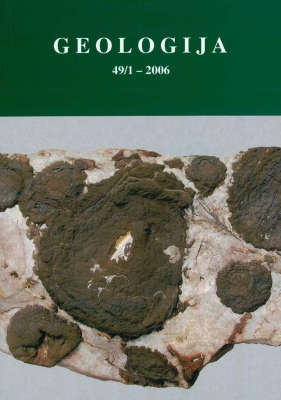Učinek izbire politik na razpoložljivost mineralnih surovin
DOI:
https://doi.org/10.5474/geologija.2006.014Povzetek
Koncem osemdesetih in v začetku devetdesetih let prejšnjega stoletja je skoraj 100 držav spremenilo, obnovilo svoje politike in zakonodajo na področju rudarstva. V začetku novega tisočletja smo, predvsem v Vzhodni Evropi, ponovno v fazi prenove. Nacionalne rudarske politike so bile obnovljene zaradi različnih razlogov. Prvič, politike izpred devetdesetih, niso bile primerljive s politikami tržnega gospodarstva, drugič, politike niso ustrezale zakonodajnem okviru integrirane Evrope, končno stare politike niso upoštevale skrbi, potreb in odprtih vprašanj današnje družbe, predvsem želje po prihodnosti temelječi na načelih trajnostnega razvoja. V članku smo se osredotočili na potekajočo revizijo rudarskih politik v Vzhodni Evropi v prehodnem obdobju, na poti k tržnem gospodarstvu. Prvo smo pregledali temeljne koncepte politik, s posebnim ozirom na namen in področje delovanja rudarskih politik. Potem na kratko opišemo stališča Evropske Unije v zvezi s trajnostnim razvojem, gospodarsko in rudarsko politiko. Temu sledi splošen pregled rudarskih politik in gospodarjenja z mineralnimi surovinami v gospodarstvih Vzhodne Evrope. Zaključujemo z ugotovitvijo, da številne rudarske politike vsebujejo usmeritve, ki lahko na regionalni ali državni ravni bolj omejujejo dostopnost do mineralnih surovin kot oskrbo z njimi. Poleg tega tudi ugotavljamo, da številni trendi rudarskih politik niso skladni z načeli trajnostnega razvoja.Prenosi
Kako citirati
Šolar, S. V., & Shields, D. (2006). Učinek izbire politik na razpoložljivost mineralnih surovin . Geologija, 49(1), 163–172. https://doi.org/10.5474/geologija.2006.014
Številka
Rubrika
Članki

